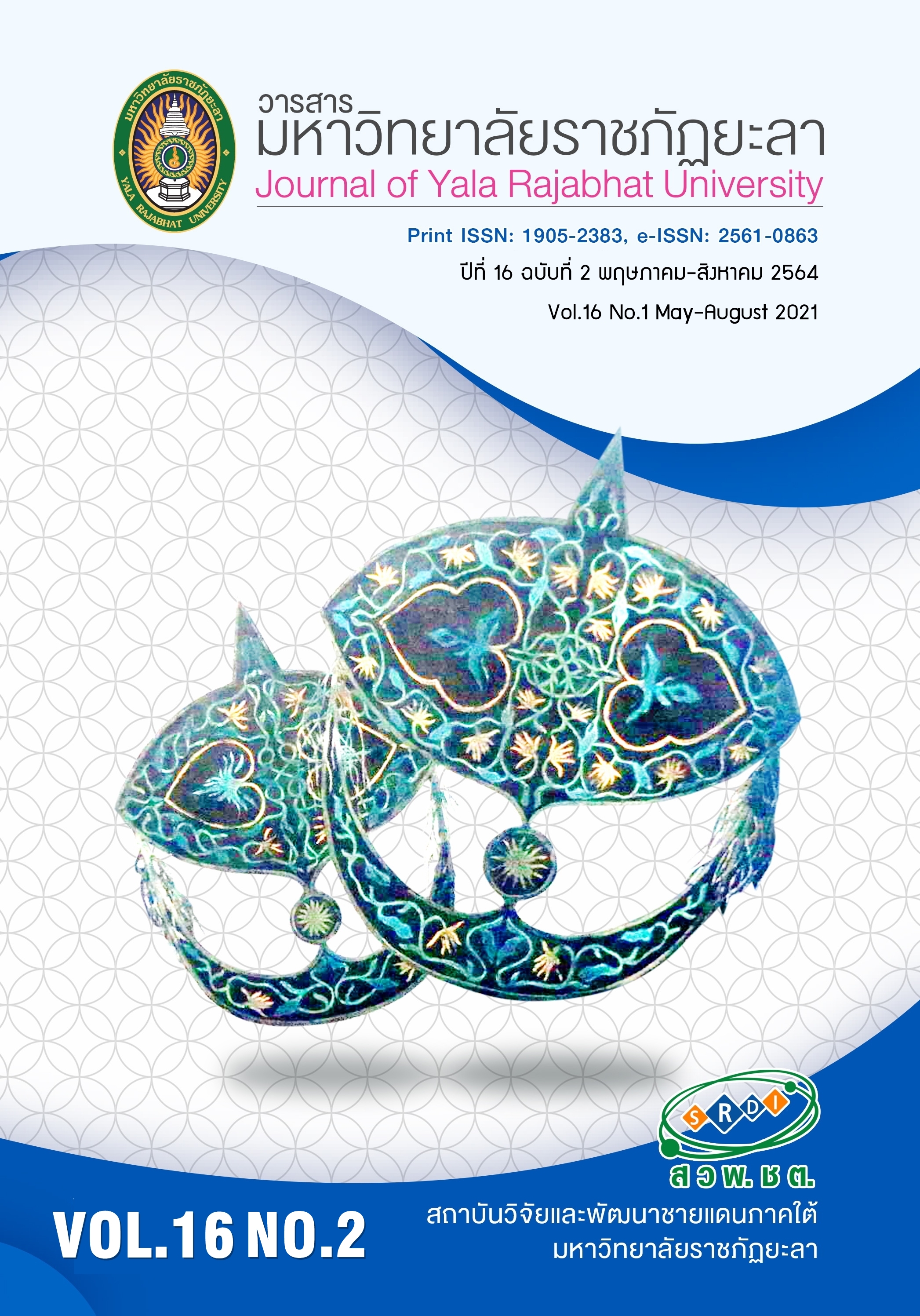แนวทางการจัดการเรียนรู้ตามวิธีการ Concrete Pictorial Abstract ร่วมกับการใช้ โปรแกรม GeoGebra ที่ส่งเสริมมโนมติทางคณิตศาสตร์ เรื่อง การแยกตัวประกอบพหุนามดีกรีสองของนักเรียนชนเผ่าลาหู่ในเขตภาคเหนือตอนล่าง
Main Article Content
บทคัดย่อ
การจัดการเรียนการสอนคณิตศาสตร์ยังพบนักเรียนมีมโนมติที่คลาดเคลื่อนและไม่เข้าใจมโนมติทางคณิตศาสตร์ จึงทำวิจัยเชิงปฏิบัติการเพื่อพัฒนาแนวทางการจัดการเรียนรู้ตามวิธีการ Concrete Pictorial Abstract ร่วมกับการใช้โปรแกรม GeoGebra ที่ส่งเสริมมโนมติทางคณิตศาสตร์ เรื่อง การแยกตัวประกอบพหุนามดีกรีสอง ของนักเรียนชนเผ่าลาหู่ในเขตภาคเหนือตอนล่าง ชั้นมัธยมศึกษาปีที่ 2 จำนวน 7 คน ของโรงเรียนขยายโอกาสในจังหวัดกำแพงเพชร เครื่องมือวิจัย ได้แก่ แผนการจัดการเรียนรู้ แบบสะท้อนผล ผลงานนักเรียน ใบกิจกรรม และแบบสำรวจมโนมติ นำข้อมูลที่ได้มาวิเคราะห์เชิงเนื้อหาและตรวจสอบข้อมูลด้วยวิธีสามเส้า ผลการวิจัยพบว่า การจัดการเรียนรู้ประกอบด้วย 4 ขั้นตอน ดังนี้ 1) การแนะนำ ชี้แจง 2) การสำรวจด้วยโปรแกรม GeoGebra 3) การจำแนกความรู้ และ 4) การปรับแนวคิด และพบว่า นักเรียนมีมโนมติทางคณิตศาสตร์ (Sound understanding หรือ SU) เพิ่มขึ้น ในขณะที่นักเรียนที่ไม่เข้าใจมโนมติทางคณิตศาสตร์ (No understanding หรือ NU) และนักเรียนที่มีมโนมติทางคณิตศาสตร์ที่คลาดเคลื่อน (Specific misconception หรือ MU) มีจำนวนลดลงในระหว่างจัดการเรียนรู้ และท้ายที่สุดนักเรียนมีการพัฒนามโนมติทางคณิตศาสตร์ (Sound understanding หรือ SU) เพิ่มขึ้นหลังการจัดการเรียนรู้ ผลการวิจัยจะเป็นแนวทางในการจัดการเรียนรู้คณิตศาสตร์ เพื่อพัฒนาความสามารถในด้านต่าง ๆ ของนักเรียน ได้แก่ ความสามารถในการแก้ปัญหา ความสามารถในการเชื่อมโยง และความสามารถในการใช้เทคโนโลยีต่อไป
Article Details
บทความ ข้อมูล เนื้อหา รูปภาพ ฯลฯ ที่ได้รับการเผยแพร่ในวารสารมหาวิทยาลัยราชภัฏยะลานี้ ถือเป็นลิขสิทธิ์ของวารสารมหาวิทยาลัยราชภัฏยะลา หากบุคคลหรือหน่วยงานใดต้องการนำทั้งหมดหรือส่วนหนึ่งส่วนใดไปเผยแพร่ต่อหรือกระทำการใดๆ จะต้องได้รับอนุญาตเป็นลายลักษณ์อักษรจากวารสารมหาวิทยาลัยราชภัฏยะลาก่อนเท่านั้น
เอกสารอ้างอิง
Brzezinski, T. (2019). My GeoGebra resource [Online]. Retrieved November 16, 2019, from: https://www.geogebra.org/m/fbfhesda.
Hui, C., Hoe, L. & Lee, K. (2017). Teaching and learning with Concrete-Pictorial-Abstract Sequence – a proposed model. The Mathematics Educator, 17(1&2), 1-28.
Jumepaeng, T., & Pavaputanon, L. (2012). The study of Matthayomsuksa 4 students’ conceptual change and geometric understanding based on van Hiele’s Theory about analytic geometry. Journal of Education Khon Kaen University, 35(2), 33-39. (in Thai).
Kijkuakul, S. (2014). Learning science directions for teachers in the 21st century. Phetchabun:Juldiskarnpim. (in Thai)
Makanong, A. (2010). Mathematical skills and processes: Development for development. Bangkok: Chulalongkorn University Printing House. (in Thai)
Mhaijakklang, S. (2011). Conceptual knowledge: The focus of mathematics teaching. My Maths, (70), 54-59. (in Thai)
Phasong, A., Sakpakonkan, N., Kanjanawajee, w. (2016). Using geogebra program to supplement learning activiteds by 4MAT model to develop mathematics achievement on introduction to Calculus for Matthayomsuksa 6 student. National Education Conference 1st Educational Management for Local Development towards ASEAN Community: New Direction in the 21 Century. July 28, 2016. Kalasin: Kalasin University. (in Thai)
Phoodee, W., & Unsok, N. (2016). Development of an advanced thinking enhancement program with GeoGebra the relation between two-dimensional and three-dimensional geometry for grade 7 students. Proceedings The 21st Annual Meeting in Mathematics (AMM 2016) Annual Pure and Applied Mathematics Conference 2016 (APAM 2016), May, 2016. Bangkok: Chulalongkorn University. (in Thai)
Putri, H., Misnarti & Saptini, R. (2018). Influence of Concrete-Pictorial-Abstract (CPA) approach toward the enhancement of mathematical connection ability of elementary school student. EduHumaniora: Jurnal Pendidikan Dasar, 10(2), 61-71.
Strickland, K. (2016). Using the CRA-I strategy to develop conceptual and procedural knowledge of quadratic expressions. TEACHING Exceptional Children, 49(2), 115-125.
Tor, T., Kaur, B. & Tay, E. (2019). Mathematics education in Singapore. Singapore: Springer.
Vaiyavutjamai, P. (2018). Analyzing errors on mathematics word problems made by ethnic primary-school students. Journal of Research and Curriculum Development, 8(1), 111-127. (in Thai)


